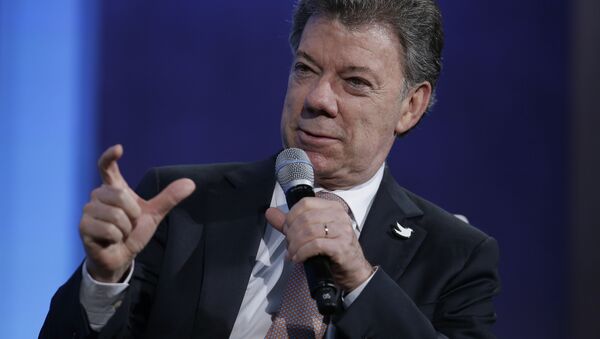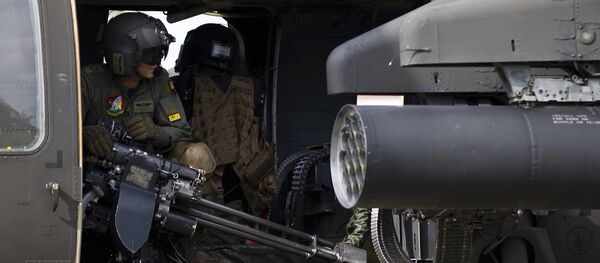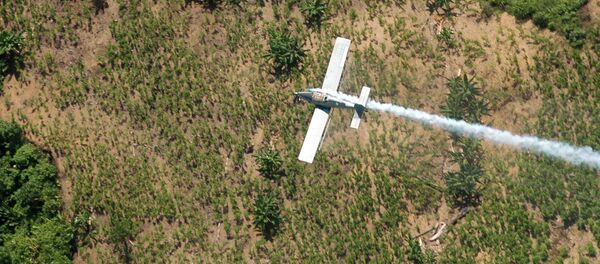In the upcoming meeting President Santos will advocate for an increase in aid to his country.
"Our main concern about that is, with or without a war, Colombia has been used to pay for other forms of repression," Jordan said, adding that, "we want to make sure any aid deal is actually going to help peace and justice, not war repressions."
What is FARC?
FARC is the Fuerzas Armadas Revolucionarias de Colombia, or, The Revolutionary Armed Forces of Colombia. Jordan defines the armed Colombian rebel group, formed in 1964 to defend the rural population against oppression and taxation by the Colombian armed forces and paramilitaries who were supported by the US, as a sort of Robin Hood entity.
"Civil war was simply a war between Colombian armed forces and the rebel army, such as FARC or ENL (National Liberation Army) that defended farmers, afro-Colombians, and rural people for control of the land.
Cuba's role in Latin America
"The US government has turned Columbia into a colony for many decades. The modern day civil war, dating back to May 27, 1964, definitely had a cold-war component, definitely was partly a response to the Cuban revolution and was advanced due to socialist revolutions and movements around the world," Jordan said. "Anti-communism has been a big component of the war against Colombian people for a long time," he said.
For many years, Cuba has maintained good relations with the Colombian government. Cuban leader Fidel Castro and former Venezuelan President Hugo Chavez advocated for peace in Latin America,actively facilitating the process so that both sides could move forward.
Peace Process for the US and Columbia.
The commitment to return displaced people to lands from which they were ousted has been said to have already begun.
"What is especially important is that entire political left of Columbia is being guaranteed that they will be able to organize politically and participate in the political process in an open way," Jordan stated, adding that the move is an unprecedented step by the government toward FARC and other opposition parties.
International Observation Necessary
The Alliance for Global Justice seeks to defend threatened communities in Colombia, especially in light of the significant number of trade unionists in the country who have been killed by their employers or by right-wing paramilitaries.
"International awareness, international observation will be absolutely key to guaranteeing this peace," Jordan said.
In 2014, 28 labor unionists were killed following a protest due to the jailing of working brethren for their participation in peaceful protests, according to Jordan.
The recent violence undermines the peace process, he said, especially in the attacks on human rights defenders in Colombia last year.
"Recursion and displacement continues, and making sure that it stops is going to require international effort. Peace is very difficult to achieve when you have an armed movement representing poor people against a government backed by powerful allies like the US."






